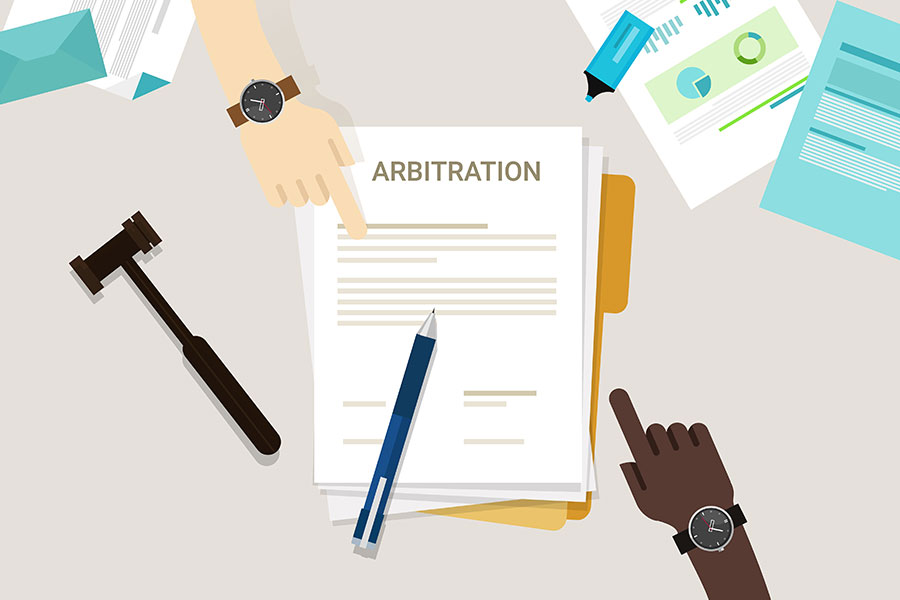The Saga of Appointment of Arbitrators: End in Sight?

Appointment of arbitrators has always been a contentious issue between the parties. Qualification, experience, impartiality, and independence are few of the issues which crop up as soon as dispute arises, and the question of the appointment comes to fore.
Indian arbitration landscape has developed over time, and the core principle of party autonomy in agreeing to the procedure of appointment of the arbitrator has been continuously subjected to statutory amendments and judicial review.
The arbitral tribunal, typically, comprises of either a single-member or a panel of three members. These appointments, subject to the terms of the arbitration agreement, are either made by parties with mutual consent or only one party unilaterally who retains the right of appointment under the contract. Further, the power of appointment is also exercised by courts under Section 11 of the Arbitration and Conciliation Act, 1996 (‘the Act’), in line with the terms of the arbitration agreement, the same being an administrative action of the court.
Even before the enactment of the Arbitration and Conciliation (Amendment) Act, 2015 (‘2015 Amendment’) right of unilateral appointment was considered by various courts and courts have, time and again, held that unilateral appointment is not an unfettered right. An employee of the appointee who has been connected to the subject-matter of the dispute cannot be appointed, given the import of Section 12 (pre-2015 amendment) of the Act.
Then in a significant overhaul of the Act by the Parliament in 2015, Red and Orange List of the IBA Guidelines on Conflict of Interest in International Arbitration was inserted as a schedule to the Act, and Section 12 was amended. These lists contain relationships between the parties, arbitrators, subject-matter and counsels whereby people having relationships falling under the Red List [Non-Waivable], incorporated under Schedule V of the Act, are prohibited from acting as an Arbitrator in the subject arbitration. Further, relationships falling under Orange List [Waivable], incorporated under Schedule VII of the Act, gives justifiable doubts as to the independence and impartiality of the arbitrator and parties are at liberty to waive the objection to the same by mutual agreement.
While the 2015 Amendment was declared prospective vide Section 26 of the 2015 Amendment, the Hon’ble Supreme Court remained inconclusive as to the applicability of the amended Section 12 and the Schedules on existing arbitrations that were invoked pre-amendment.
The amendment to Section 12 to the Act was considered by the Supreme Court in Voestalpine Schienen Gmbh v. Delhi Metro Rail Corporation Limited, (2017) 4 SCC 665. The Supreme Court highlighted the distinction between the concept of ‘independence’ and ‘impartiality’. It further held that time has come to send positive signals to the international business community to create a healthy arbitration environment and a conducive arbitration culture in this country. The court also opined that Schedule V and VII needs to act as a ‘guide’ to the already existing principle of impartiality and independence.
Subsequently, the Supreme Court in Board of Control for Cricket in India v. Kochi Cricket Private Limited & Others (2018) 6 SCC 287, hinted that amendments to the provisions of the Act, which are clarificatory might have retrospective effect. This, along with the question as to whether the court while appointing an arbitrator can deviate from the procedure prescribed under the agreement, were considered by the Supreme Court in the case of Union of India v. Parmar Construction Company 2019 SCC OnLine SC 442, which I had the opportunity to argue at length for the Respondent. Unfortunately, the arguments advanced on behalf of the Respondent did not find favor with the court, and it held that the first resort of the court, under Section 11, should be to follow the procedure provided under the arbitration agreement. The Hon’ble Supreme Court further held that amended Section 12 of the Act would not apply to arbitrations initiated before the amendment.
For appointments made in arbitrations, invoked post 2015 amendment, a three-judge bench of the Supreme Court in TRF Limited v. Energo Engineering Projects Ltd. (2017) 8 SCC 377, decisively ruled against unilateral appointments of arbitrators. The court held that a person who is himself barred from becoming an arbitrator, in light of Section 12 of the amended Act, cannot even appoint an arbitrator.
However, various High Courts still distinguished TRF judgments on facts and continued to follow the procedure provided under the agreement, including unilteral appointments.
It was finally in Perkins Eastman Architects DPC & Anr. vs. HSCC (India) Ltd. 2019 (6) ArbLR132 (SC), that Division Bench of the Supreme Court went a step further and held that all arbitration agreements which contain a clause for the unilateral appointment of an arbitrator by one party is in the teeth of Section 12 of the Act and are null and void. It also implied that the court, while appointing an arbitrator under Section 11 need not follow the procedure laid down under the arbitration agreement in case it requires only one party to suggest the name. However, while the court in Perkins cited Voestalpine, it left the question of the legality of the selection of an arbitrator from a panel suggested by the other party open. This issue was answered by the Hon’ble Bombay High Court in Lite Bite Foods Pvt. Ltd. v. Airports Authority of India 2019 SCC OnLine Bom The court interpreted Perkins to hold that suggestion of a narrow panel and other party’s obligation to choose an arbitrator from that list, too, is impermissible.
While the community was welcoming the Perkins judgment, shortly after that, three Judges Bench of the Supreme Court in Central Organisation For Railways Electrification v. M/s ECI-SPIC-SMO-MCML (JV) A Joint Venture Company 2019 SCC OnLine SC 1635, held that a panel of five arbitrators appointed by the Ministry of Railways, comprising their current and past employees, was valid and enforceable even when all the three arbitrators for the panel could be from the same five names suggested. The Supreme Court based its decision on the logic that the power to appoint an arbitrator by one party was counter-balanced by an equal power in favor of the other party to choose from a list. Surprisingly, while the court relied upon Perkins, TRF, and Voestalpine, the decision seems to run contrary to them.
Presently, the situation remains as it is, and there remains a logical ambiguity on the legality of the appointments by one party when it suggests a panel of limited names to the other party. Further, what also remains to be seen is the impact of Perkins judgment on appointments made under Section 11 by courts interregnum Parmar Constructions and Perkins.
In our belief, the time is not far when the legislature or the court will settle the controversy and put a conclusive end to this saga aligning itself to the international best practices and norms.
The wait, however, I hope, will not be too long!





